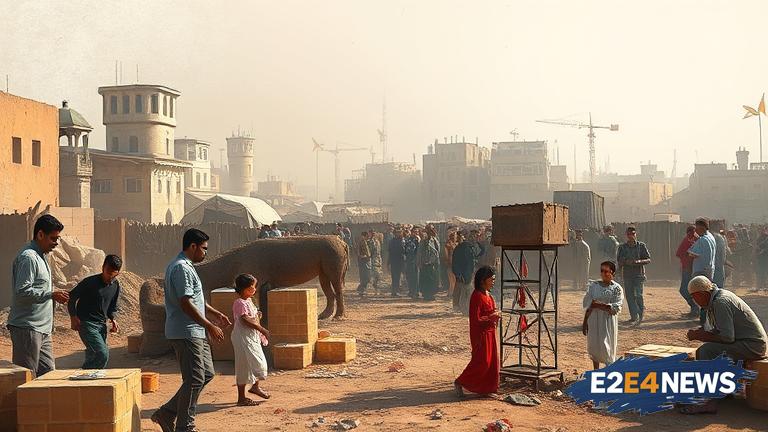The United Nations food programme has issued a stark warning about the dire food situation in Gaza, where nearly 30% of the population is struggling to access basic nutrition. According to the programme, many people in Gaza have been forced to go without meals for days, with some families relying on just one meal a day. The crisis is attributed to a combination of factors, including a crippling blockade, high unemployment rates, and a severe lack of funding for humanitarian aid. The situation has been exacerbated by the COVID-19 pandemic, which has further strained the already fragile economy. The UN food programme has been working tirelessly to provide assistance to those in need, but the organization is facing significant challenges in its efforts to reach the most vulnerable populations. The food crisis in Gaza is not only a humanitarian issue but also a political one, with many blaming the Israeli government’s blockade for the severe shortages. The blockade, which has been in place for over a decade, has severely restricted the movement of people and goods in and out of Gaza, making it difficult for aid to reach those who need it most. The UN has repeatedly called for the blockade to be lifted, citing the devastating impact it has had on the civilian population. Despite these efforts, the situation on the ground remains dire, with many families struggling to survive. The lack of access to basic necessities like food, water, and healthcare has taken a devastating toll on the mental and physical health of the population. Children are particularly vulnerable, with many suffering from malnutrition and related health problems. The UN has warned that the situation could deteriorate further if urgent action is not taken to address the root causes of the crisis. The international community has been criticized for its response to the crisis, with many arguing that more needs to be done to support the people of Gaza. The UN food programme has appealed for increased funding to support its efforts, but so far, the response has been inadequate. As the situation continues to deteriorate, there are fears that the crisis could have far-reaching consequences, not just for the people of Gaza but for the region as a whole. The UN has warned that the crisis could lead to increased instability and conflict, making it imperative that urgent action is taken to address the situation. In the meantime, the people of Gaza continue to suffer, with many forced to rely on handouts and aid to survive. The situation is a stark reminder of the need for a lasting and just peace in the region, one that addresses the root causes of the conflict and provides a sustainable solution for the people of Gaza. The international community must take immediate action to address the crisis, including providing increased funding for humanitarian aid and working to lift the blockade. Only through collective action can we hope to alleviate the suffering of the people of Gaza and provide a brighter future for generations to come. The UN food programme will continue to work tirelessly to support those in need, but it is imperative that the international community does more to support its efforts. The people of Gaza deserve our help and support, and it is our collective responsibility to ensure that they receive the assistance they so desperately need. The crisis in Gaza is a humanitarian emergency that requires an immediate and sustained response from the international community. We must act now to prevent further suffering and to provide a sustainable solution to the crisis. The UN food programme’s warning is a stark reminder of the need for urgent action, and it is imperative that we respond quickly and decisively to address the situation.
